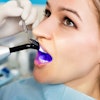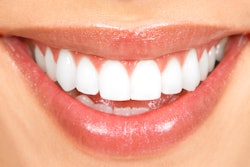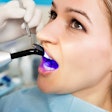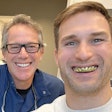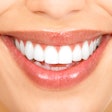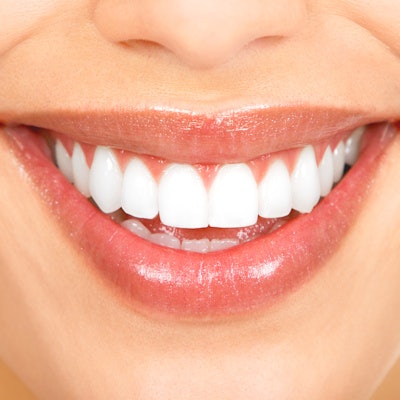
In a recent study on tooth color, participants ranked models with white teeth as more popular, friendly, intelligent, and confident. Participants also deemed models with whitened teeth to be younger and better educated.
The findings, published in the September issue of the Journal of Dentistry, shed light on how society uses tooth color to make judgements. They also reveal how tooth color can influence social interaction and social well-being, according to the authors, led by J. Tim Newton, a professor of psychology as applied to dentistry at the King's College London Dental Institute.
"Based on the current and prior research, it appears that poor dental appearance may lead others to judge people negatively over a range of personality characteristics," wrote the authors (J Dent, September 2021, Vol. 112).
The team of U.K. researchers recruited 18 Caucasian models ages 20 to 50 for the study. The models underwent full-face imaging to capture a smile with "as many as possible of their anterior teeth." The researchers then created three sets of pictures for each model: one with their natural teeth color, one with darkened teeth, and one with whitened teeth.
The researchers showed the pictures of models in random order to 50 study participants, also ages 20 to 50. The participants had been told they were participating in a study that explored "the way we look at each other" and were asked to judge the models based on age, attractiveness, intellectual ability, and more.
Participants ranked the photos of the models with darkened teeth worse across all variables, whereas they gave high ratings to the photos with whitened teeth. Trends were similar regardless of the participants' age and gender.
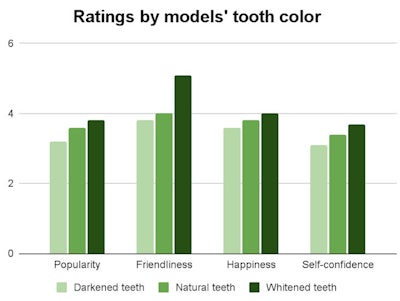
In photos with whitened teeth, the models ranked as significantly more popular, friendly, successful at school, intelligent, happy, self-confident, younger, and attractive. They were more likely to be deemed as having a good social life and having attended university.
The models were judged as being a full year younger in photos showing whitened teeth. Participants were also more than twice as likely to say they were satisfied with the models' tooth shade in photos with whitened teeth.
Participants were consistent in their responses, but some trends stood out. Younger models received higher ratings than older ones, and female models ranked higher than male models for most measures.
Furthermore, younger participants gave models higher scores and had less-discriminating ratings. Meanwhile, participants who were not satisfied with their own teeth gave lower ratings to models with darkened teeth -- but higher ones to models with whitened teeth.
"It is likely that less satisfaction with one's own appearance is relatively a reason for the increasing demand to change the dental appearance by opting to undergo tooth-whitening and other cosmetic procedures," the authors wrote.
The study reflects trends seen across other research into the effect of tooth whitening, orthodontics, and cosmetic dentistry on perceived appearance. While the focus group was narrow in this particular case, the authors hope future studies include people from around the world and with additional oral hygiene factors.
"Involving a larger sample may detect any further interaction between the respondents and images," they concluded.

